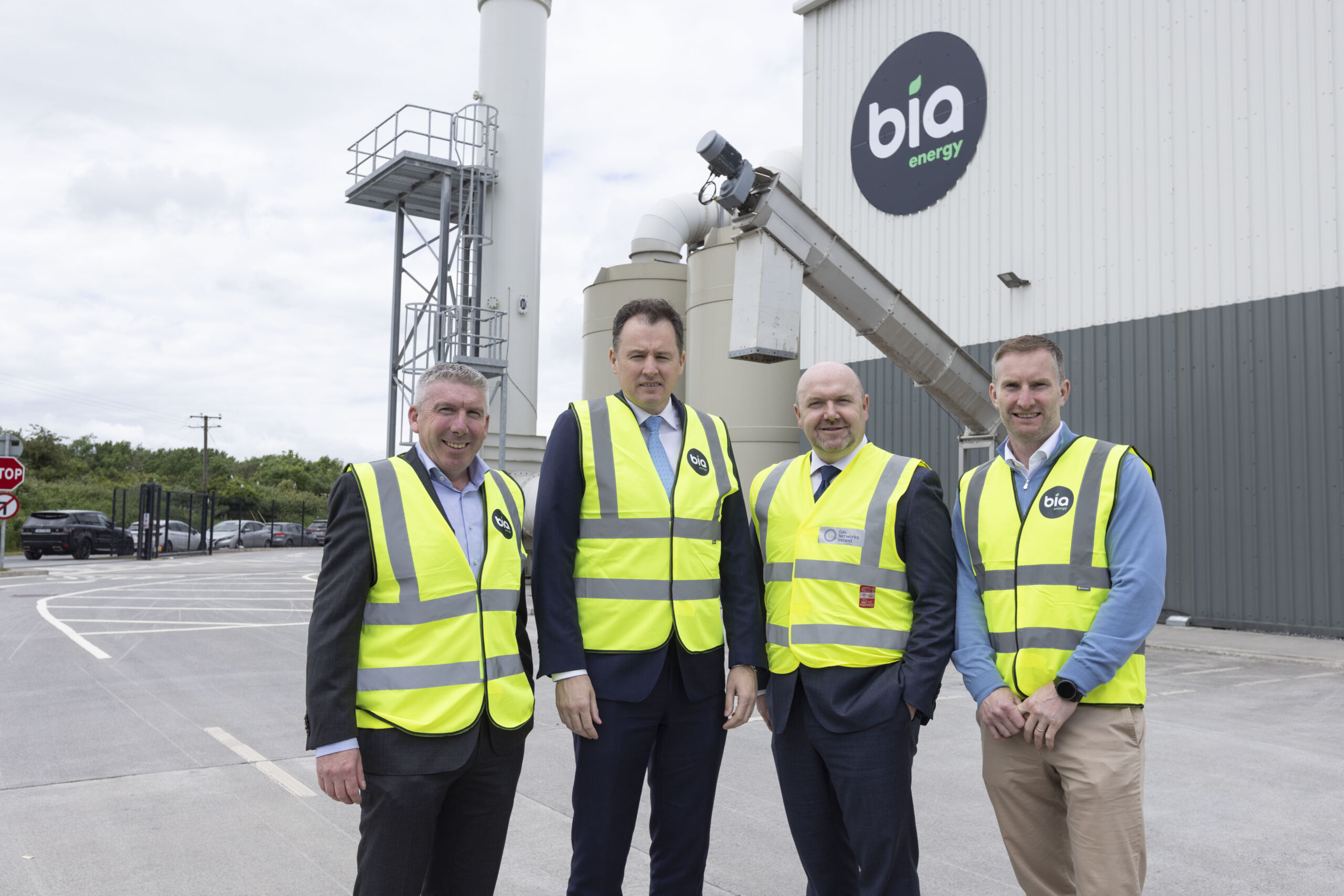Bia Energy Launch
Launch of €63m Bia Energy Anaerobic Digestion Plant

Press Release
We are delighted to announce the official launch of the Sretaw PE/Bia Energy Anaerobic Digestion Plant in Co. Dublin, on May 29th, 2024, in the presence of Minister for Agriculture, Food, and the Marine, Charlie McConologue T.D.
Our state-of-the-art facility processes a variety of feedstocks including packaged food, food waste, food processing residues, and agricultural feedstocks like cattle slurry and chicken litter. By capturing gas through controlled decomposition, we significantly reduce greenhouse gas emissions. Currently, our plant generates 4.8 megawatts (MWe) of renewable electricity. We are reconfiguring to produce biomethane, in line with Ireland's goal to produce 5.7 TWh of indigenously sourced biomethane by 2030.
The launch event also marks the announcement of a significant partnership with Gas Networks Ireland, creating Dublin’s first direct Renewable Gas Entry Point at our facility. This collaboration is a milestone for Ireland's renewable energy sector, allowing biomethane made from food waste to be injected directly into the State’s gas network.
Our launch coincides with the Government's National Biomethane Strategy announced on Tuesday, underscoring our commitment to sustainability and innovation in the agrifood sector. Minister McConalogue emphasised how this facility supports the Government’s Biomethane Strategy and the creation of valuable resources from organic waste.
Speaking at the event, Minister McConalogue said:
“The launch of this facility aligns with the Government’s Biomethane Strategy and is a positive step forward in our aim to create opportunities for the Irish agrifood sector to produce not only food but also energy.
This facility embodies the innovative spirit and commitment to sustainability that is essential for Ireland's future. Furthermore, it demonstrates how, by working with local farmers and leveraging the expertise of Gas Networks Ireland, Bia Energy shares the Government’s ambition to turn organic waste into valuable resources. Success will be this nascent sector reducing greenhouse gas emissions while providing the agricultural sector with nutrient-rich biofertiliser and alternative income opportunities."
With a €63 million investment, Bia Energy will create up to 30 local jobs and further expansion plans.
Bia Energy’s Managing Director, Brendan Traynor said:
“Our commitment to sustainability includes careful management and processing of food waste, offering a sustainable solution for food manufacturing, distribution, retail, and waste, thereby closing the loop on the circular economy.
We are also partnering with local farmers to provide a nutrient-rich biofertiliser, replacing approximately 7,000 tonnes of chemical fertiliser annually and supporting the growth of a variety of crops.
Bia Energy’s Dublin plant is set to contribute up to 120 gigawatt hours (GWh) of biomethane annually to the national gas network, more than doubling the biomethane volume injected in 2023 and reducing nearly 25,000 tonnes of carbon dioxide emissions each year.”
David Kelly, Director of Customer and Business Development at Gas Networks Ireland, highlighted the crucial role of biomethane in decarbonising the gas network and achieving the State’s 2030 emissions reduction target.
“Replacing natural gas with biomethane in the short term is a crucial first step in the decarbonisation of the gas network. Biomethane can play an important role in meeting the State’s 2030 emissions reduction target and having increased volumes of biomethane on the national gas network will enable businesses to procure this renewable gas to decarbonise their operations.
Gas Networks Ireland is delighted to partner with Bia Energy on this project, which will not only enhance Ireland's energy security by reducing reliance on imported energy, but also support the decarbonisation of the hard-to-abate sectors.”
This launch of the Bia Energy AD facility marks a significant advancement in Ireland’s renewable energy landscape, contributing to the decarbonisation of our national energy grid and promoting a circular economy.